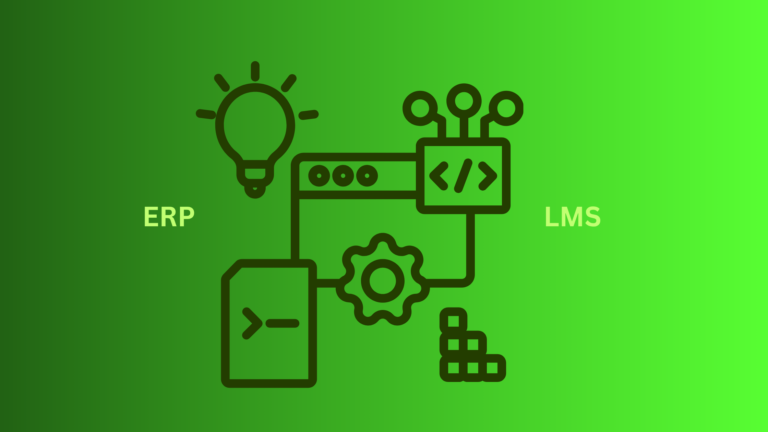Learning Management Systems (LMS) have become indispensable tools for organizations seeking to streamline training and education processes. In industries with stringent regulatory requirements, such as healthcare, finance, and manufacturing, ensuring compliance is paramount. This exploration delves into the crucial role of LMS in regulatory compliance and how organizations can leverage these platforms effectively.
“Try our LMS in Regulatory Compliance for with a free demo—sign up today!”
The Significance of Regulatory Compliance
Industry-Specific Regulations
In many sectors, adherence to regulations is not just a best practice but a legal requirement. Industries such as healthcare must comply with standards like HIPAA (Health Insurance Portability and Accountability Act), financial institutions with regulations like Sarbanes-Oxley, and manufacturing companies with safety standards like ISO 45001. Non-compliance not only poses legal risks but can also lead to reputational damage and financial consequences.
Continuous Changes and Updates
Regulations are dynamic, and often subject to frequent changes and updates. Staying compliant requires organizations to stay abreast of these changes, adapt their policies and procedures accordingly, and ensure that employees are consistently trained on the latest compliance requirements.
The Role of LMS in Regulatory Compliance
Centralized Training Management
LMS serves as a centralized platform for managing and delivering training content. This centralized approach ensures that training materials are up-to-date and easily accessible to all employees, facilitating uniformity in compliance training across the organization.
Automated Tracking and Reporting
LMS platforms offer automated tracking of training progress and completion. This feature is invaluable for regulatory compliance as it provides a real-time overview of the organization’s compliance status. Automated reporting ensures that organizations can easily demonstrate their commitment to compliance during audits.
Customizable Learning Paths
Customization in LMS (Learning Management Systems) allows organizations to create tailored learning paths based on job roles and responsibilities. This ensures that employees receive targeted training relevant to their specific compliance requirements, optimizing the use of time and resources.
Ensuring Content Compliance
Content Authoring Tools
LMS (Learning Management Systems) often comes equipped with content authoring tools that enable organizations to create and update compliance training materials in-house. This flexibility ensures that content is not only tailored to specific needs but can also be modified promptly in response to regulatory changes.
Version Control
Maintaining version control is crucial in compliance training. LMS allows organizations to track versions of training materials, ensuring that employees are consistently exposed to the most recent and accurate compliance information.
User Authentication and Security Measures
User Authentication
Regulatory compliance often involves safeguarding sensitive information. LMS platforms incorporate robust user authentication measures, ensuring that only authorized personnel have access to critical compliance training materials.
Data Encryption
To protect sensitive data, LMS platforms implement encryption protocols. This ensures that information exchanged within the LMS, including training records and compliance data, remains secure and confidential.
Tracking and Auditing Capabilities
Effective tracking and auditing capabilities in an LMS are crucial for monitoring user activities and ensuring compliance. The system should provide detailed logs of user interactions, including course progress, assessments, and access history. Robust tracking mechanisms enable administrators to conduct audits, identify compliance gaps, and address issues promptly. Integration with reporting tools enhances the LMS’s ability to generate comprehensive reports on user performance, completion rates, and adherence to regulatory requirements.
Real-Time Monitoring
LMS (Learning Management Systems) provides real-time monitoring of training activities. Organizations can track which employees have completed specific compliance modules, identify areas of non-compliance, and address issues promptly.
Audit Trails
Robust audit trail features in LMS (Learning Management Systems) platforms document user interactions, changes to training content, and completion records. These audit trails serve as comprehensive records during regulatory audits, demonstrating a commitment to transparency and compliance.
Integration with Regulatory Updates
Integrating regulatory updates into an LMS involves establishing a streamlined process to incorporate changes in laws or industry standards into the training content. Regularly monitor regulatory updates, and ensure a swift update of relevant training materials within the LMS. This may involve collaborating with legal or compliance teams, leveraging automated content updating systems, and maintaining clear communication channels to inform users about changes. Regularly reviewing and updating content ensures that the LMS aligns with the latest regulatory requirements.
Integration Capabilities
LMS (Learning Management Systems) platforms often have integration capabilities that allow organizations to link directly with regulatory databases. This ensures that any updates or changes in regulations automatically reflect in the training content, eliminating the risk of outdated or non-compliant materials.
Automated Notifications
To keep pace with regulatory changes, LMS (Learning Management Systems) can be configured to send automated notifications to relevant stakeholders. This ensures that organizations are promptly informed of any updates that may impact compliance training.
Employee Engagement and Compliance Culture
Fostering employee engagement and compliance culture in a Learning Management System (LMS) involves creating interactive and relevant training content. Encouraging regular participation through gamification, interactive modules, and real-world scenarios can enhance engagement. Additionally, clear communication about the importance of compliance, providing accessible resources, and recognizing and rewarding adherence to regulations contribute to building a strong compliance culture within the LMS.
Interactive Learning Features
LMS (Learning Management Systems) platforms enhance engagement through interactive features such as quizzes, simulations, and discussions. These elements make compliance training more engaging, increasing the likelihood of information retention among employees.
Promoting a Culture of Compliance
LMS (Learning Management Systems) contributes to building a culture of compliance within organizations. Through regular and engaging training, employees develop a strong understanding of the importance of compliance, fostering a proactive approach to regulatory adherence.
Challenges of LMS in Regulatory Compliance
Ensuring regulatory compliance in Learning Management Systems (LMS) involves addressing challenges such as data privacy concerns, accessibility standards, and staying current with evolving education and technology regulations. Additionally, managing user authentication, protecting sensitive information, and adapting to regional or industry-specific compliance requirements can pose significant hurdles.
Keeping Pace with Changes
The dynamic nature of regulatory changes poses a challenge in ensuring that LMS (Learning Management Systems) content is consistently updated. Organizations must establish processes to promptly integrate new compliance requirements into their training programs.
Ensuring Employee Participation
While LMS (Learning Management Systems) enhances accessibility, ensuring active employee participation in compliance training remains a challenge. Employers must employ strategies to motivate and engage employees in the learning process.
Conclusion: Harnessing LMS for Robust Regulatory Compliance
In conclusion, LMS (Learning Management Systems) plays a pivotal role in ensuring regulatory compliance within organizations. From centralized training management to customizable learning paths and robust tracking capabilities, LMS (Learning Management Systems) platforms offer a comprehensive solution to the challenges posed by dynamic regulatory environments.
Acadle’s Contribution to LMS in Regulatory Compliance
Acadle, as a leading provider of LMS solutions, understands the critical role customization and adaptability play in ensuring regulatory compliance. With its user-friendly interface, advanced tracking features, and integration capabilities, Acadle’s LMS stands as a powerful ally in the quest for robust and efficient regulatory compliance. By leveraging Acadle, organizations can not only mLMS in Regulatory Complianceeet compliance requirements but also foster a culture of continuous learning and adherence to regulatory standards.
“Get ready for 2025 with the top LMS in Regulatory Compliance! Make training easy and keep your team compliant. Start your free demo today and see how simple it can be!”



